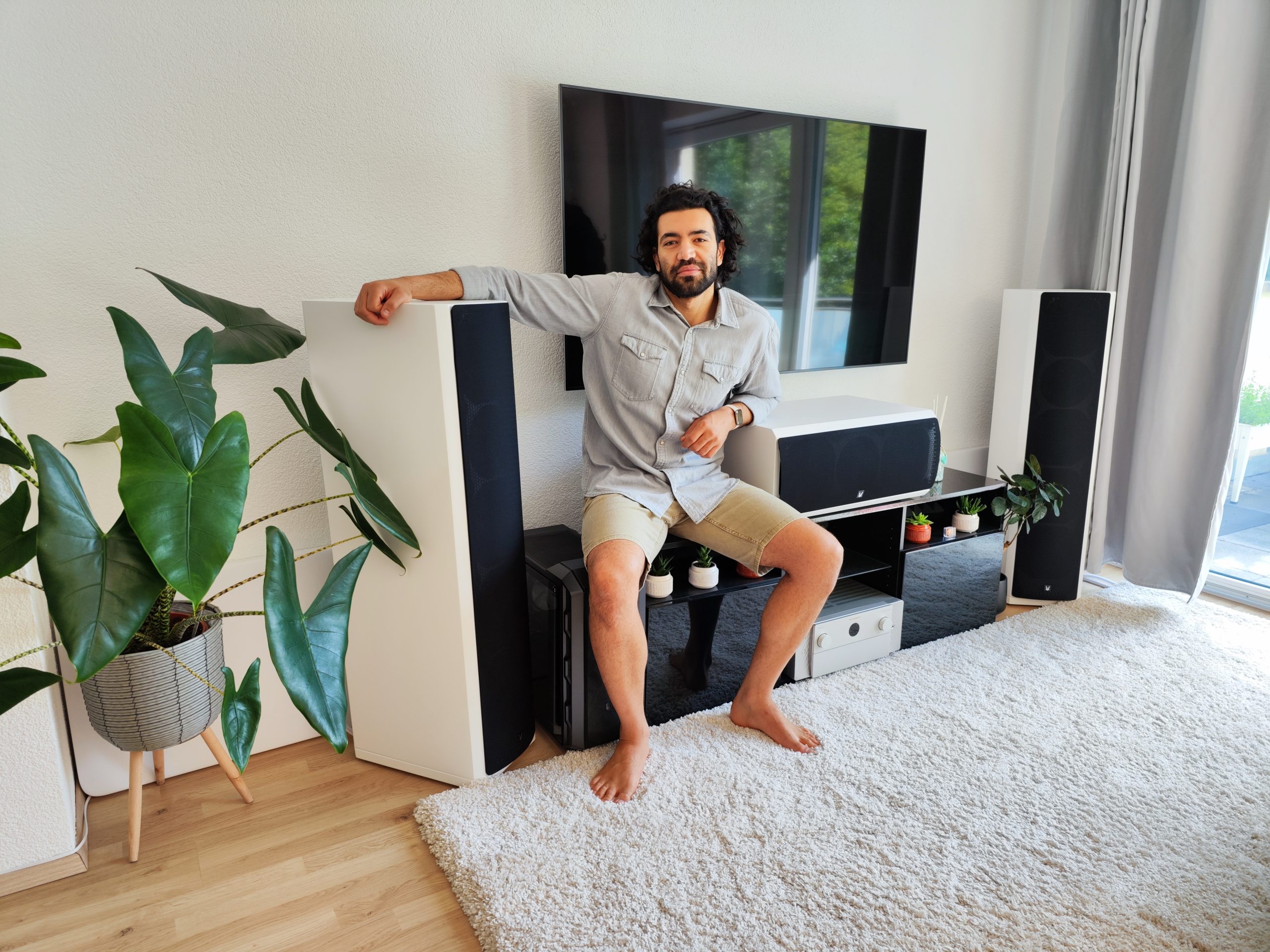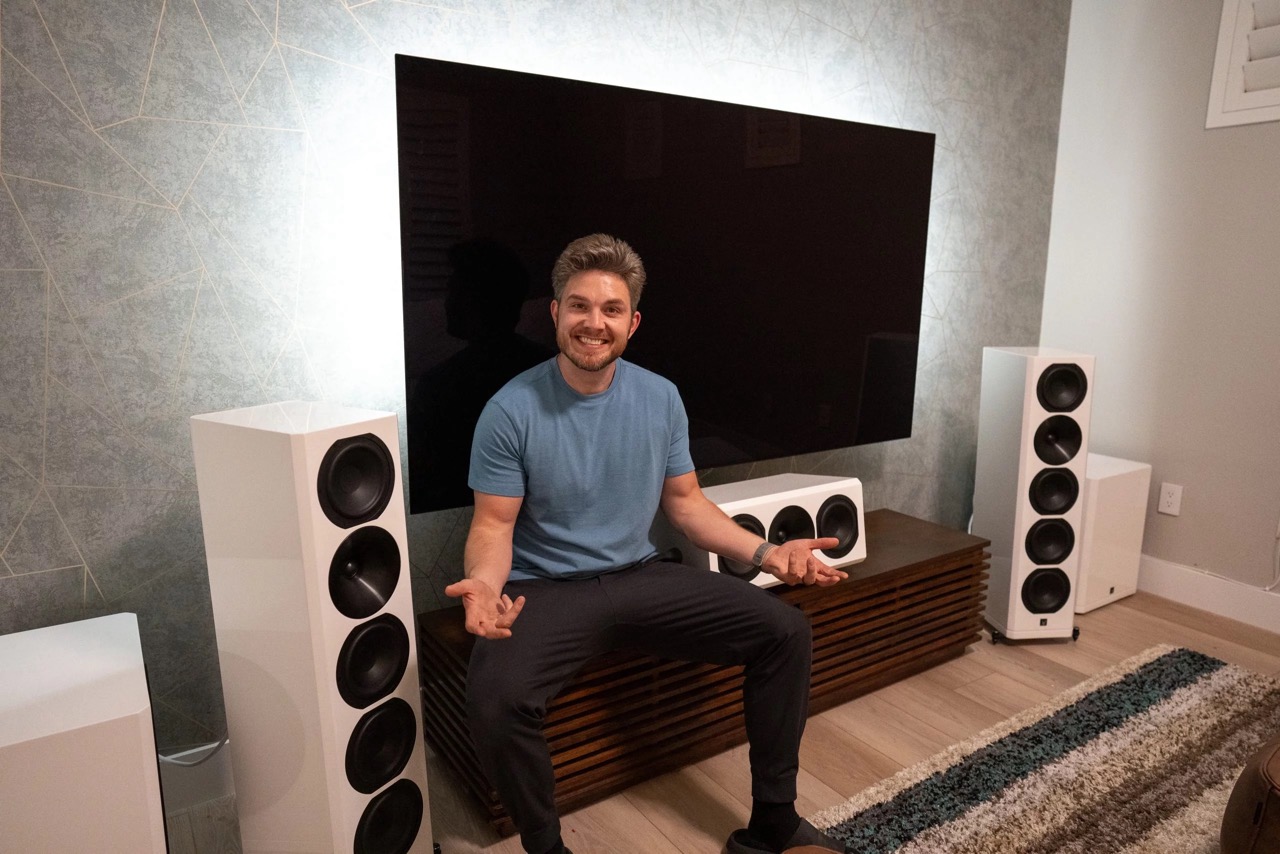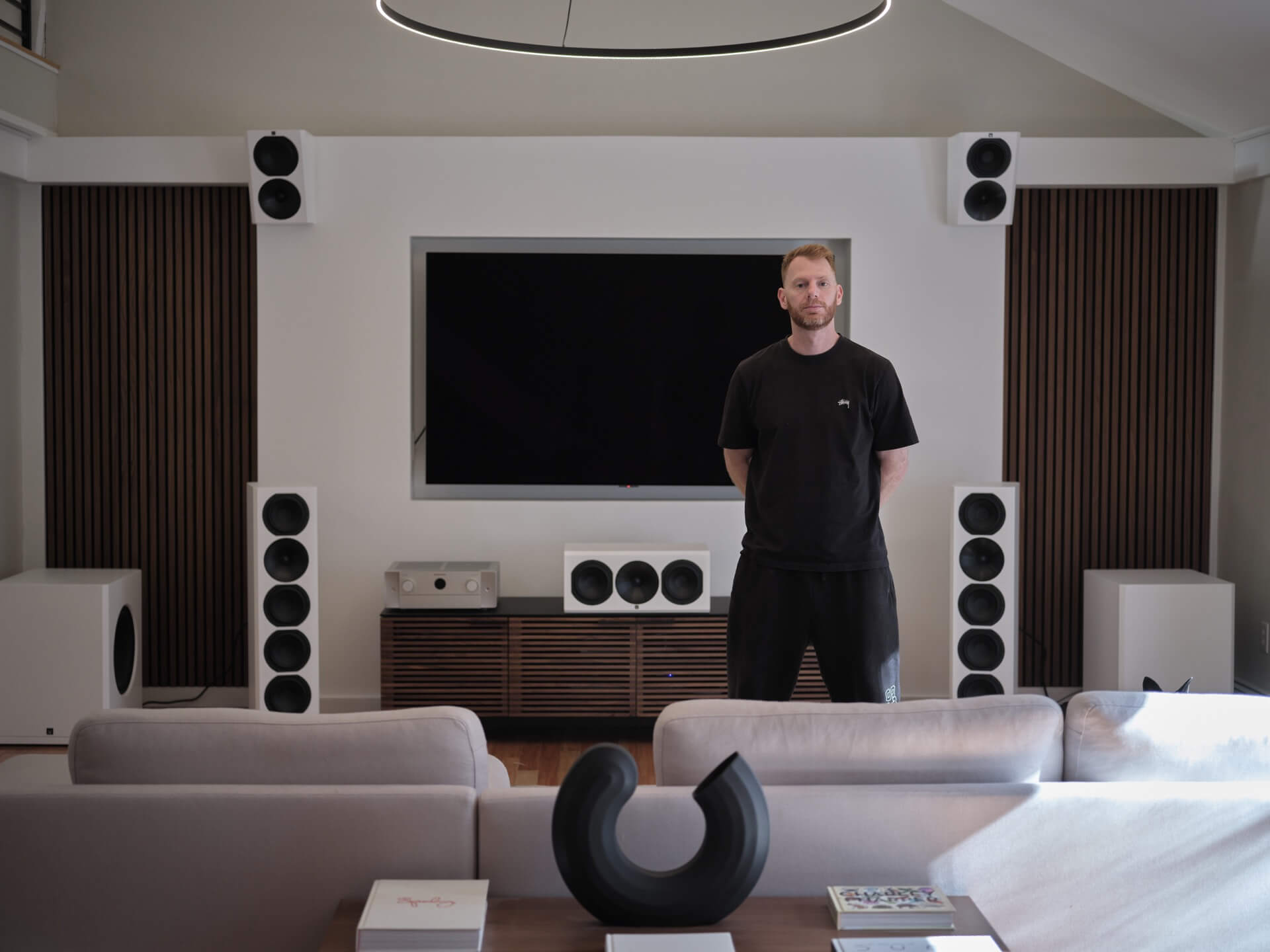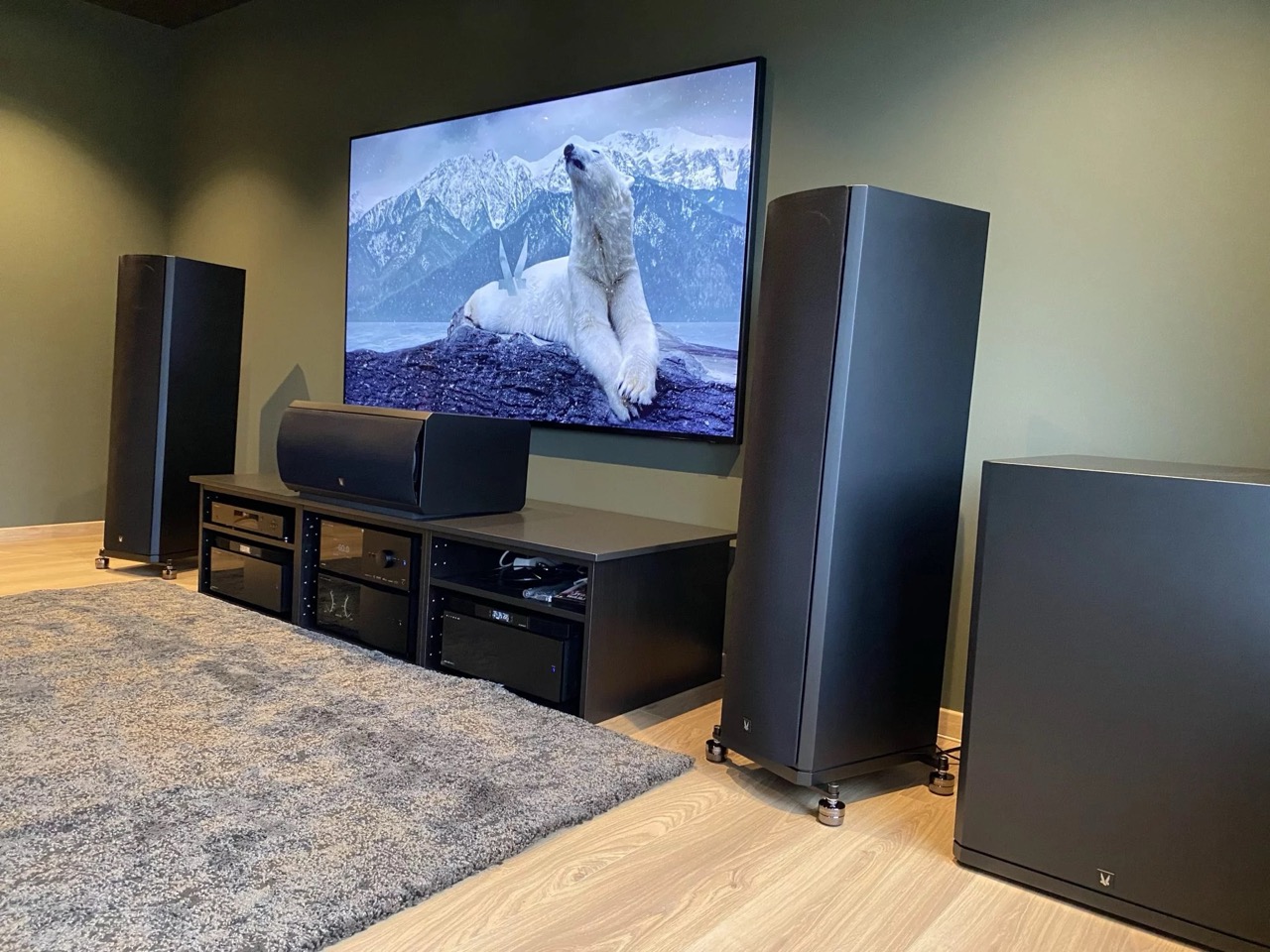Televisions vs. Projectors – What is best for Your Home Theater
Article summary - TL;DR
- Televisions offer convenience, easier installation, and great performance in brightly-lit environments.
- Projectors excel in creating a cinematic experience with larger screen sizes, but require darker rooms and careful setup.
- Space considerations matter—televisions are ideal for smaller areas, while projectors suit dedicated home theaters.
- Evaluate long-term costs: TVs tend to have lower maintenance needs compared to projectors, which may require bulb replacements.
- Enhance your home theater setup with the 1528 Tower 8 for immersive sound that complements your viewing choice.
Introduction to Viewing Technologies
The decision between employing a television or a projector as the center of a home theater can be quite perplexing. Both technologies have undergone significant advancements, offering extraordinary picture quality and providing an immersive viewing experience. In this guide, we’ll delve into the nuances of televisions and projectors, assisting you in making an informed decision for your home cinema.
Televisions have become incredibly sophisticated, with options ranging from LED to OLED and QLED, offering crisp, vibrant images. On the other hand, projectors have also stepped up, with enhanced brightness levels, high definition resolution, and even 4K capabilities. Your choice will influence the overall ambiance and functionality of your home theater setup.
As we examine the features of both technologies, we’ll consider factors such as the size of your room, ambient light conditions, and your personal preferences for display aesthetics and image quality. Whether you’re a casual viewer, a gaming enthusiast, or a cinephile, there’s a perfect solution for your home theater vision.
Understanding the Television Advantage
Televisions are a staple in most households for good reason. Their ease of use, straightforward installation, and consistent image quality under various lighting conditions make them highly desirable. Modern televisions now come with built-in smart features, providing direct access to streaming services and a plethora of entertainment right out of the box.
The quality of televisions has improved with technology such as 4K Ultra HD resolution, HDR, and refresh rates ideal for fast-paced content. Moreover, the color accuracy and brightness levels of televisions tend to be superior in brightly-lit environments when compared to projectors, which often need darker rooms to maximize image visibility.
However, one must consider the space constraints that come with televisions. The screen size is fixed, which means you won’t experience the same expansive viewing field as you would with a projector. Moreover, televisions can be more expensive as the screen size increases, potentially making larger models a costlier option for those desiring a vast display.
Projectors: Bringing the Cinema Home
Projectors excel in immersing you into the cinematic experience. They can cast large images that can easily surpass the size of a conventional television, creating an engaging atmosphere akin to a movie theater. These devices provide a range of screen sizes, allowing for a customizable setup accommodating nearly any room size.
Home theater projectors have made remarkable progress in delivering high-quality images comparable to televisions. Higher-end models offer 4K resolution, HDR support, and excellent color reproduction. Running costs are generally lower, as projectors don’t typically come with the additional features and electronics that televisions possess.
Despite their advantages, projectors do have a few drawbacks. They require a dark room to prevent image washout due to external light interference, and they need regular maintenance like bulb replacements. They also necessitate a careful setup that includes a proper screen, fine-tuning of the image, and possibly a sound system, as built-in projector speakers are often unsatisfactory.
Space Considerations and Installation
Space is a significant factor when making your choice. Televisions are self-contained units with relatively minimal installation requirements, making them a convenient choice for smaller living spaces. Furthermore, wall mounting provides the freedom to utilize floor space for seating and other home theater components.
Projectors, conversely, require a clear, unobstructed path to project an image onto a screen and therefore are ideally suited for larger, dedicated rooms. You must also account for the placement of the projector itself, whether ceiling-mounted or table-placed, which might not be feasible in tighter spaces.
The installation process is generally more complex for projectors, considering the screen setup and calibration of image size and focus. A technical inclination can be beneficial when opting for a projector, whereas televisions offer near-instant gratification post-installation with minimal adjustment required.
Cost and Long-Term Value
When budgeting for your home theater, consider not only the initial investment but also the long-term costs associated with your decision. Televisions tend to be less maintenance-heavy than projectors, with no bulbs to replace, and a longer lifespan in general, often making them a more economical choice over time.
Projectors can appear to be a more budget-friendly option initially, especially when it comes to larger screen sizes. However, the cost of replacement bulbs, along with potential upgrades to sound systems and screens, can add up. It’s important to factor in these ancillary costs to get a full picture of the long-term investment.
The value of the experience should also be weighed. If the thrill of a theater-sized screen or the versatility of a large projection area is high on your priority list, the additional costs associated with a projector setup might offer a worthwhile return on investment for your entertainment needs.
Conclusion: Balancing Preferences and Practicality
The debate between opting for a television or a projector for your home theater setup comes down to a balance of personal preference and practical considerations. Televisions offer convenience, lower maintenance, and better performance in well-lit rooms. Projectors provide a larger-than-life cinematic experience but require a controlled environment and additional setup considerations.
In making your decision, closely examine your living space, consider your viewing habits, and evaluate both the upfront costs and the long-term investments. Most importantly, choose the option that resonates with your vision of a dream home cinema where you can relax, entertain, and enjoy your favorite media to the fullest.
No matter which route you choose, the advancements in both television and projector technologies ensure that you’ll have a compelling and enjoyable viewing experience. Be it a cozy movie night or an exciting game day gathering, your home theater will undoubtedly be the hot spot for entertainment.
Frequently asked questions
What are the main advantages of using a television in a home theater?
Televisions offer ease of use, straightforward installation, and consistent image quality in various lighting conditions. They typically feature built-in smart features for direct access to streaming services.
How do projectors enhance the cinematic experience at home?
Projectors provide large images that can create an immersive, movie theater-like atmosphere, accommodating various screen sizes and enhancing the viewing experience.
Do televisions perform better in bright rooms compared to projectors?
Yes, televisions generally have superior color accuracy and brightness levels, making them more suitable for well-lit environments compared to projectors, which perform better in darker rooms.
What are the space requirements for installing a projector?
Projectors require a clear path to project onto a screen, making them ideal for larger, dedicated spaces. They also need careful placement and setup, which can be complex.
What ongoing costs should I consider for projectors?
Projectors may have lower initial costs but can incur ongoing expenses for bulb replacements and potential upgrades to sound systems and screens.
Are there advantages to choosing a larger television over a projector?
Larger televisions provide better performance in bright environments and are easier to install with less maintenance required, making them a more practical choice for some users.
How do I decide between a television and a projector for my home theater?
Consider your living space, viewing habits, ambient light conditions, and long-term costs. Weigh the convenience of a television against the immersive experience of a projector.
What types of television technology should I look for?
Look for modern technologies like LED, OLED, and QLED, which offer vibrant, crisp images with features like 4K resolution and HDR for better picture quality.
Can projectors deliver image quality comparable to televisions?
Yes, high-end projectors now offer excellent image quality with features like 4K resolution and HDR support, allowing them to compete with televisions for clarity and color reproduction.
What are the installation advantages of using a television?
Televisions are self-contained, easier to install, and can be wall-mounted, freeing up floor space for seating and other components, making them more convenient for smaller areas.








